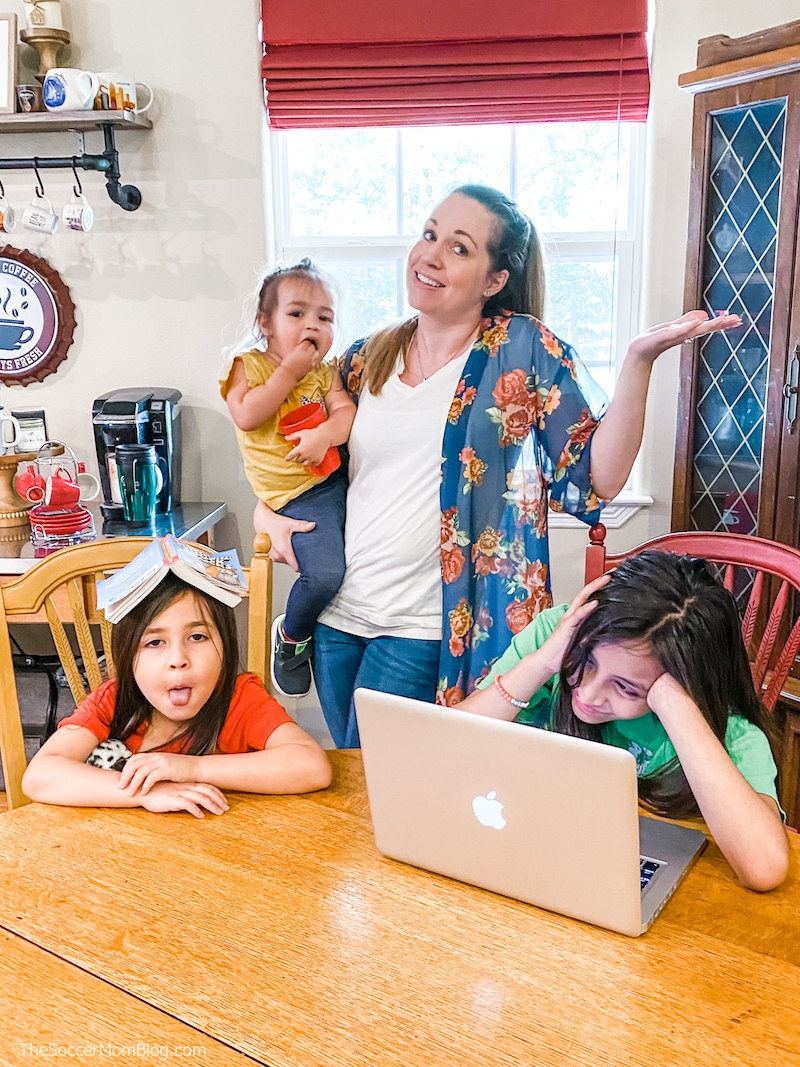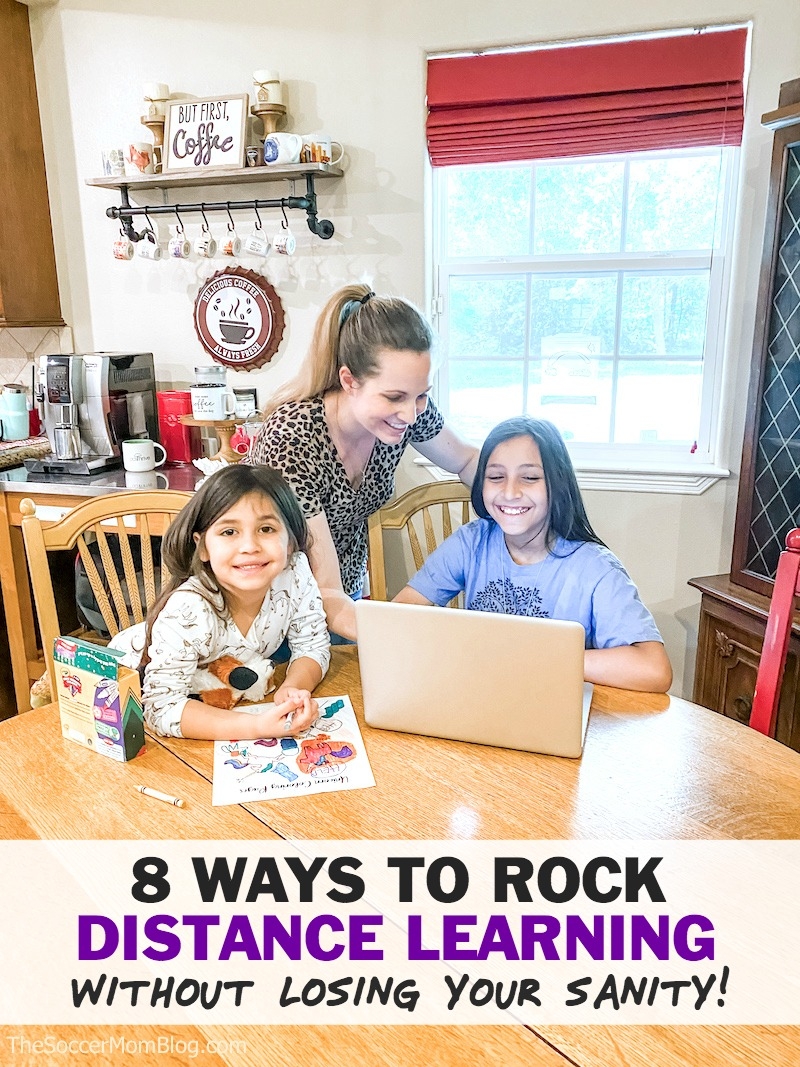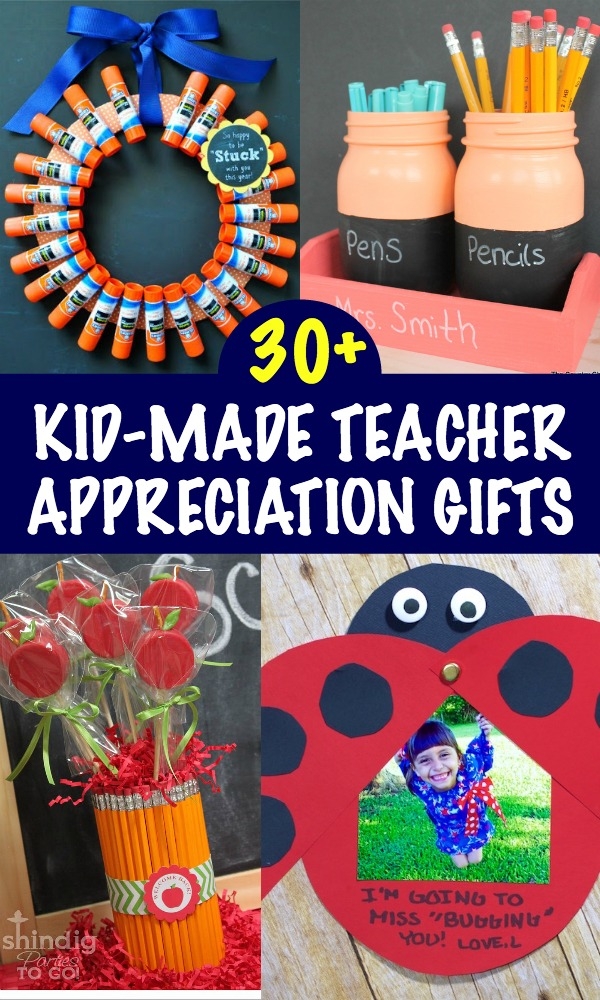What’s inside: A compilation of success strategies for distance learning during the COVID crisis, from our friends, fellow moms, and educational bloggers. Sponsored by yes. every kid.
Real talk: What was the first thing you felt when you got the word that schools would be closed for the rest of the school year?
I’m going to be honest…
I felt kind of relieved at first.
Relieved that I didn’t have to worry about my kids getting sick. Relieved that we didn’t have to wake up at 6am to get ready for school. Relieved that we would have a little more precious time together with our kids.
And then I felt sad.
Sad that my 5-year-old wouldn’t get a kindergarten graduation.
Sad the girls wouldn’t get to see their teachers again this year.
I feel for the teachers who put so much work into planning this year only to have it cut short.
My heart hurts for the seniors who don’t get to experience prom or walking across the stage together one graduation day.
I swear when we drove by the high school and saw the signs they hung up to recognize each individual senior I had to hold back tears.
And I don’t even have a high schooler!!
The Emotional Impact of School Closures
Over 55 million students have seen their education disrupted by school closures. However, these school closures don’t just affect students.
Millions of parents are also grieving what “should have been,” as well as dealing with anxiety about how to get through the next month of distance learning…and what comes after that.
Myself included!
This situation is unlike anything we’ve experienced before, and it’s ok to feel ALL the feelings sometimes.
Relief.
Sadness.
Frustration.
Fear.
Some days I just want to curl up in a ball and not deal with any of it…
It’s on those days that I reach out to my friends…my “tribe” if you will, for advice.
This is a new thing for all of us — that’s it’s so important to help one another. Whether it’s sharing an idea that helped get you through the week or being a listening ear.
Together we can do this. YOU can do this!
8 Ways to Rock Distance Learning with Your Kids
I can’t even tell you how many times I’ve reached out to my “tribe” over the past few weeks. They never disappoint me and are always so generous with their ideas and their support!
That’s why I wrote this post — to share some of the best tips I’ve gotten from my fellow educational and kid bloggers on how to rock at-home learning for as long as we need to do so.
I hope they are as helpful for you as they were for me!
1. Find a Source of Support
This is crucial!!
Being “stuck” at home can feel isolating, but we don’t have to go through this unprecedented challenge alone! And we shouldn’t!
Finding other parents to talk to, share ideas with, and sometimes just to vent can be a huge boost to your spirits. It’s also a way to get ideas and inspiration to not just survive this trying situation, but to thrive!
I’ve leaned heavily on my tribe of blogging friends over the past couple months. We have a small private Facebook group where the 18 of us can talk freely with each other about what we’re going through — with no judgement.
Another Facebook group that’s open to the public is the #LearnEverywhere Facebook group, created by yes. every kid. (YES) — which has over 11,000 members.
I’m a member of the #LearnEverywhere group and I encourage you to join too!
The goal of the#LearnEverywhere Facebook group is to help families navigate this time (and beyond) with a place to share ideas, as well as build a community dedicated to learning and exploring with our kids.
In addition to the social community, LearnEverywhere.org is an online compilation of resources for at-home learners and their families. You can also submit your own ideas and things that worked for you to help other families!
2. Create a Schedule that Works for YOUR Family
When states first started issuing stay-at-home orders, there were quite a few examples of daily schedules for school at home that were shared widely on social media.
I’ll readily admit that creating a strict schedule with every hour of the day mapped out seemed overwhelming to me. However, some of my friends say that their schedule is what saves them!
The takeaway here is that every family is different, just as every child is different. What works well in one household might not work as well in another. And even within a family, kids may learn at different speeds. And that’s ok!
Rachel at Wunder-Mom.com explains that among her five children, some are missing their public schools, while one is loving working at her own pace so much that she’ll be homeschooling full time next year.
That’s why Rachel’s schedule isn’t so much an hour-by-hour chart, as it is guidelines that will work for all the kids. She says, “We start at the same time everyday and stop at lunch, weather or not we’ve finished all of the tasks. Later in the afternoon we reconvene and finish up anything left over.”
Each kid gets to work in the way that they do best, and everyone is a lot less stressed!
3. Be Flexible
Even with a schedule, things happen. With everyone at home all day, that means there are lots of interruptions!
My friend Beth, a classroom teacher for 13 years and blogger at Days With Grey, wrote an awesome blog post for us “new homeschool moms.”
A few highlights:
- Give yourself grace — most of us don’t have teaching experience and are doing the best we can with what we have.
- Allow things to develop organically — you and your kid(s) will find your groove over time.
- Be flexible with interruptions and look for positive ways to handle them.
Beth explains, “Our homeschool start time [is] flexible […] because many mornings the boys are off and busy playing. I can use the morning to take a step back in time and remember the power of play.” (You can read her full post here!)
4. Make Learning Fun
Speaking of play, it really can be a powerful learning tool!
Tove from Mama in the Now also emphasizes using play to help engage younger kids who may be struggling with distance learning or missing the routine of their school.
Since her kindergartener especially misses his classmates, Tove goes out of her way to make things fun and feel less like “work.” She says, “I will incorporate their lessons into some sort of game – so he doesn’t realize he’s learning.”
I couldn’t love this more!
Yes, school work is important. However, kids can learn everywhere and there are so many practical life activities that provide opportunities for kids to learn AND have fun at the same time.
Some of our favorites include baking (which involves measurements and sequencing) and gardening. Learning can take place anywhere, not only inside a school building!
Related: 20+ Ways for Kids to Learn at Home (Without Worksheets!)
5. Set Boundaries
Older kids are able to do a lot more of their work independently, but it doesn’t hurt to have a little extra motivation!
For example, Jodi at Meaningful Mama explains that she doesn’t allow television, video games, or FaceTime with friends until school work is done for the day.
We follow the same rule in our house too! I’ll readily admit that we’ve allowed the kids a little more screen time than usual lately, BUT only after our school work is done for the day.
6. Take One Thing at a Time
One of the biggest challenges facing parents right now is the pressure to do. it. all.
In addition to our normal day-to-day tasks, we’re also sharing a lot of educational responsibilities with schools. All while dealing with a worldwide crisis!
It’s no wonder that parents are feeling especially overwhelmed. However, one of the most helpful things for my friend Laura at Sunny Day Family was making the decision to simply take one thing at a time.
She says, “I restructured [the kids’] assignments so that we are focusing on one subject per day instead of doing a little of each every day. This allowed us to focus more and the lessons made much more sense for my first graders! We’ve also concentrated only on work that needs to be turned in for a grade and done ‘extras’ when it’s a topic that they are more engaged in.”
7. Take a Break When You Need It
Perhaps the most important piece of advice that I can share is that it is OK to take a break. It’s ok to say “no” or “not right now” sometimes.
If it’s just “one of those days” and the kids are struggling and you’re losing patience…
…just stop
…take a breath
…take a break
…do something else
The school work will still be there when you get back.
Throughout the day our family takes what we call “brain breaks” to play, read a book, have a snack, or go outside. When we’re done, we all feel refreshed and ready to tackle anything that comes our way!
8. Focus on the Positives
The news lately is bombarding us with a lot of heavy stuff. However, there are also some bright spots from this extra time at home, and that is where I’m choosing to put my focus.
One thing I love is that we’re getting to spend more time together as a family then ever before. Not only do we enjoy family dinner together every night, but now we have family breakfast and family lunch too!
Helping our kids with their school day is definitely extra work for us parents, but it also gives us a chance to see how our kids learn and what might help them later down the road.
For example, my 5-year-old misses the community feeling of being at a physical school building. Daily video chats with her class help her to stay connected.
My oldest daughter, on the other hand, has thrived with online learning and being able to work at her own pace. Many of her teachers have “office hours” throughout the week where they are available for video chats with students. This has allowed my daughter to get to know her teachers better and she even got student of the month!
This unprecedented shared experience for humankind has given us the chance to remember what truly matters in our lives.
Join the #LearnEverywhere Community
My church has the slogan, “Don’t do life alone” — I couldn’t say it any better myself!
Finding a supportive community is so important, especially during these times where our normal routines are on pause.
Here’s a recap of some of the places to find support and ideas to encourage your kids to learn everywhere and in the ways that work best for them:
- Join the #LearnEverywhere Facebook group
- Explore the resources available at LearnEverywhere.org
- Share your stories on the YES Instagram, Twitter, and LinkedIn
What are some of the things that have helped you and your family with distance learning? I’d love to hear YOUR tips in the comments below!
You might also like:
Kid-Made Teacher Appreciation Gifts
- Paper Chain Octopus Craft - April 24, 2024
- Amish Sugar Cookies - April 19, 2024
- Marshmallow Playdough - April 18, 2024





Lynda says
Teach your child some earth science like the planets and stars. You stimulate your child’s imagination, which can help them be creative.